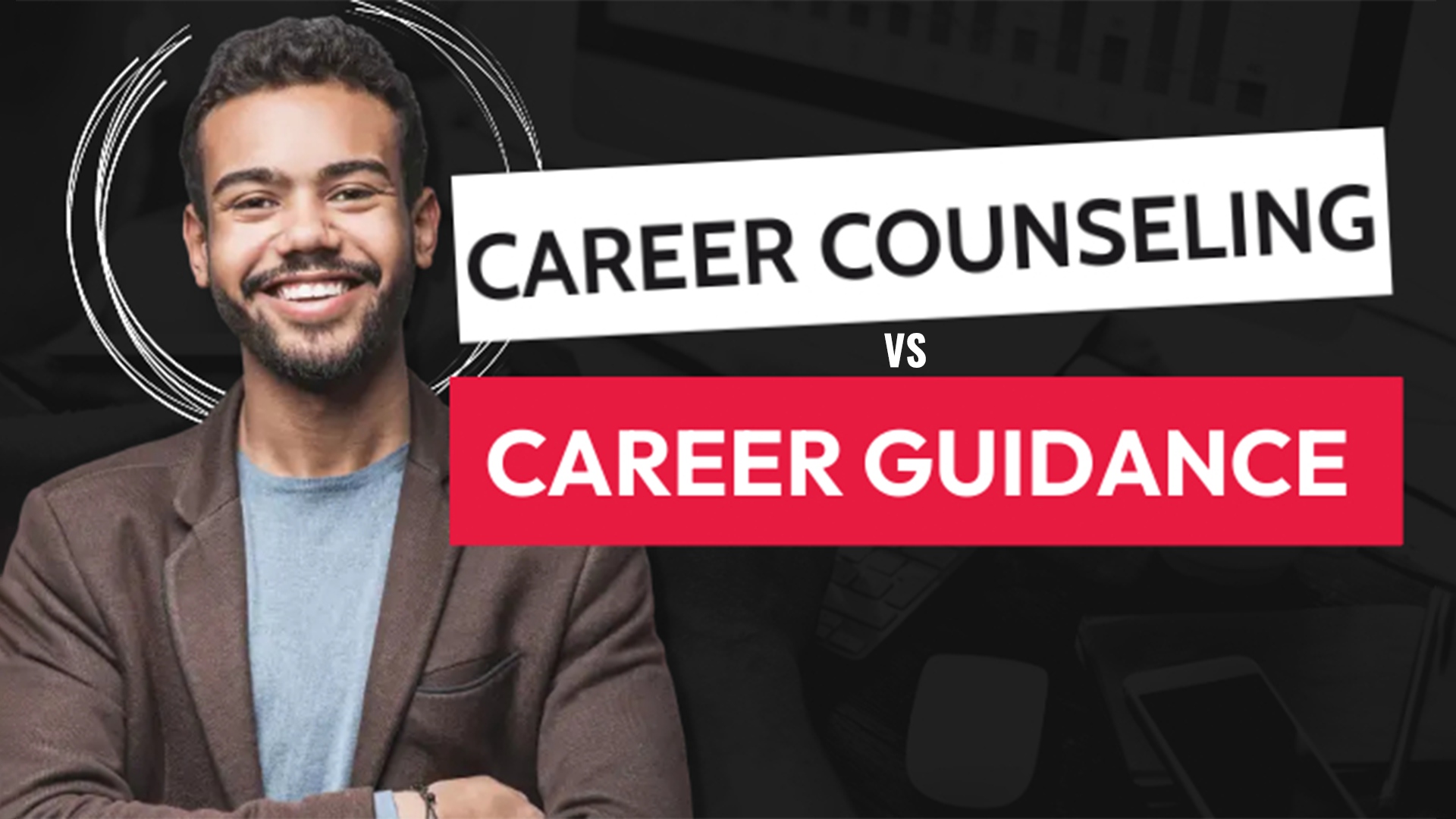
Career counselling vs Career Guidance. What’s the difference and which one do you need?
- Jul 24, 2025
- By Aimshala Admin

When it comes to planning your future, especially in your career, you might have come across the terms "career counseling" and "career guidance." Even though they might sound similar, they serve different purposes and cater to different needs. Understanding these differences is important while deciding which option is right for you. Let’s break it down!
1. What Is Career Counseling? Career counseling is a structured process that involves a professional helping individuals understand their strengths, weaknesses, interests, and values in relation to career choices. Counselors use various tools and techniques to assess a person’s personality and abilities, guiding them toward suitable career paths. This process often involves one-on-one sessions where you can explore your feelings, preferences, and concerns about your future. 2. Who Is It For? Career counseling is beneficial for: Students: Those who are unsure about their career paths or are overwhelmed by the choices available. Recent Graduates: Individuals entering the job market who need help identifying their skills and finding opportunities. Professionals Seeking Change: Those considering a career shift but unsure about how to proceed or what options to explore. 3. Key Features of Career Counseling Personal Assessment: This often involves psychometric tests or personality assessments to help identify your strengths and preferences. In-depth Sessions: Career counselors spend time discussing your past experiences, interests, and long-term goals. Actionable Plan: You’ll leave with a clear plan of action tailored to your unique situation, including potential career paths and steps to take.
1. What Is Career Guidance? Career guidance is a broader term that encompasses providing information and advice about various career options. It includes resources like workshops, seminars, and informational interviews. Guidance is often less personalized than counseling and focuses more on providing knowledge about job markets, industries, and available opportunities. 2. Who is it for? Career counseling is beneficial for: Students Exploring Options: Those who want to learn about different career fields without necessarily delving deep into personal assessments. Job Seekers: Individuals who need help with resume writing, interview preparation, and job search strategies. Professionals Considering Continuing Education: People looking to upskill or change industries who want to understand what further education may be required. 3. Key Features of Career Guidance Information Sharing: Guidance provides a wealth of information about various career paths, including job descriptions, educational requirements, and industry trends. Workshops and Seminars: Many guidance programs offer group sessions that cover a variety of topics, from resume building to networking strategies. Resource Access: Career guidance often involves connecting individuals with resources such as job boards, educational institutions, and mentorship opportunities.
1. Focus Career Counseling: Focuses on individual strengths and weaknesses, exploring personal interests, and developing a tailored plan. Career Guidance: Centers on providing information and resources about various career options. 2. Personalization Career Counseling: Highly personalized, often involving in-depth discussions and assessments. Career Guidance: More general, aimed at providing knowledge applicable to a wider audience. 3. Process Career Counseling: Typically involves structured sessions over time, allowing for deep exploration of your career aspirations. Career Guidance: Usually consists of workshops or seminars that are shorter in duration and less intensive. 4. Duration Career Counseling: May require multiple sessions over weeks or months to help clients develop a comprehensive understanding of their career paths. Career Guidance: Often one-off sessions or short-term workshops that provide quick information.
Assess your situation based on these questions: 1. Are You Unsure About Your Career Path? If you find yourself confused about which direction to take, career counseling might be the best choice. A counselor can provide personalized insights and a roadmap to help you clarify your goals. 2. Do You Just Need Information? If you’re primarily looking for facts about job options or industry trends, career guidance may suffice. This can be particularly helpful if you’re exploring multiple paths without needing deep personal analysis. 3. Are You Looking to Change Careers? For professionals wanting to switch careers, career counseling can offer a deeper exploration of transferable skills and help identify new opportunities aligned with your values. 4. Do You Want to Learn New Skills? If your goal is to acquire new skills for a specific job market, career guidance can connect you with the resources and information you need to upskill or retrain.
Many people find that a combination of both career counseling and guidance serves them best. For example, starting with counseling to identify your strengths can give you a solid foundation. Then, you can seek guidance to learn about specific career paths that align with those strengths.
Choosing between career counseling and career guidance ultimately depends on your individual needs. If you’re feeling lost or uncertain about your future, counseling can provide a deeper understanding and actionable steps. On the other hand, if you need specific information or skills, guidance may be more appropriate. Remember, there’s no one-size-fits-all answer. The key is to assess your situation, determine what you need, and take proactive steps to seek the right support. Whether you choose counseling, guidance, or a blend of both, investing in your career development is a step toward achieving your goals and finding fulfillment in your professional life.


Report
440 out of 573 found this helpful

Tell us more and we’ll help you get there